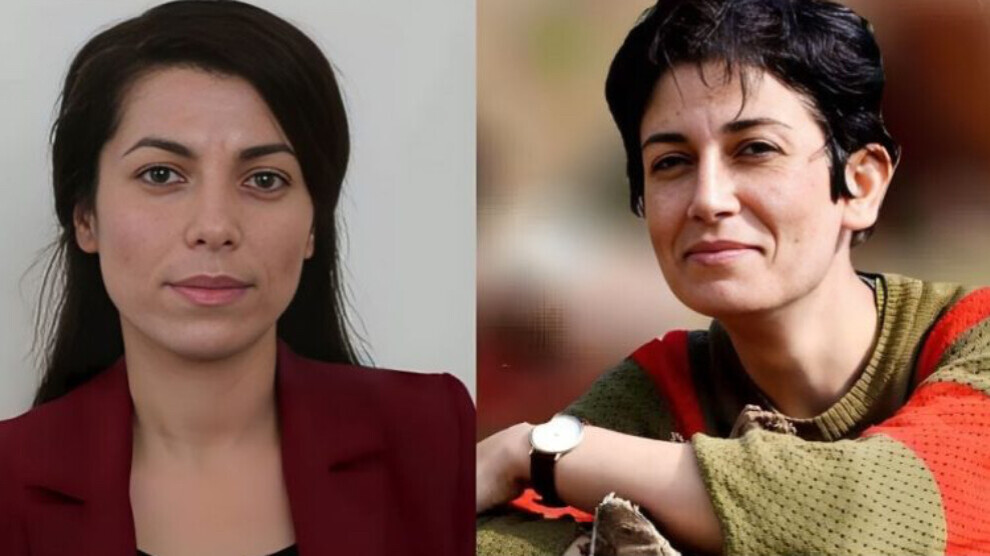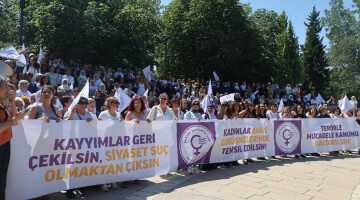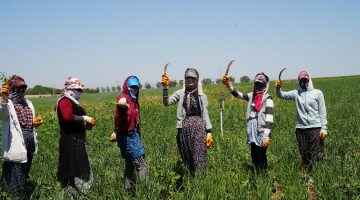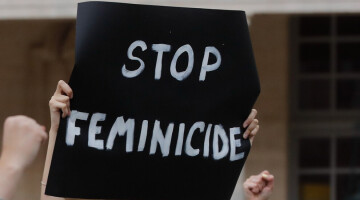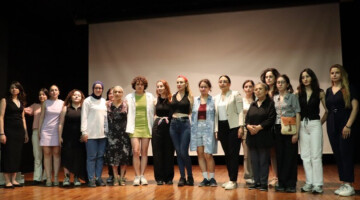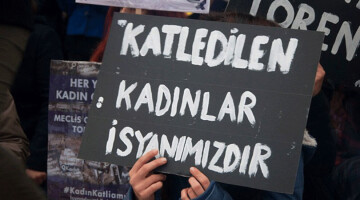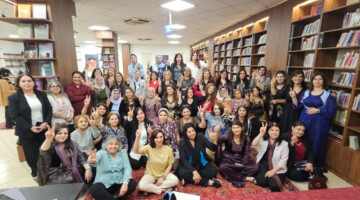Kurdish women Warishe Moradi and Pakhshan Azizi, who are imprisoned in Evin Prison in Iran's capital Tehran, have gone on hunger strike. They are protesting against Moradi's transfer to the notorious torture wing 209. Kurdish activists Warishe Moradi and Pakhshan Azizi, who are being held in Tehran's Evin prison, have gone on hunger strike. They have been protesting since last Tuesday against Moradi's transfer to Wing 209, as the Paris-based Kurdistan Human Rights Network (KHRN) reported on Thursday. The wing, which consists of individual cells, is under the control of the Iranian Ministry of Intelligence and is notorious for the severe torture of political prisoners.
According to KHRN, the transfer of Warishe Moradi to wing number 209 was ordered by Judge Abolqasem Salavati. She is to be interrogated again in the run-up to the trial, and Moradi will also be denied contact with her family for a period of one week. Salavati, who presides over the Revolutionary Court in Tehran, is known for harsh sentences and decisions in cases involving "national security". Because of many death sentences he passed, he is also known as the "judge of death".
Warishe Moradi, also known as Ciwana Sine, was arrested on 1 August 2023 at a police checkpoint near her hometown of Sine (Sanandaj) and taken to an unknown location. The activist is a member of KJAR, the umbrella organisation of the Kurdish women's movement in Iran, and was committed to women's political and feminist issues. Her whereabouts were unclear for months after her abduction.
It was only later revealed through research by KHRN that Moradi had been brutally tortured, abused and interrogated by the Iranian intelligence service in Sine for weeks after her arrest, until she was transferred to Tehran at the end of August. There she was held for months in the high-security wing 209 of Evin Prison - also under torture and ill-treatment with the aim of breaking her or forcing a confession from her.
Moradi has been in the women's section of the prison since the beginning of January. In February, charges were brought against the activist for "enmity to God" and "armed rebellion against the state" in connection with her alleged membership of the "Party for a Free Life in Kurdistan" (PJAK). These charges are punishable by death in mullah-ruled Iran. It is still unclear when the trial will begin. Several dates for the start of the trial have been postponed in the past.
Pakhshan Azizi is also accused of being a member of the PJAK. The qualified social worker was also arrested in August, albeit in Tehran by agents of the Ministry of Intelligence. The regime also arrested several members of her family. While they were released after several days of interrogation, Azizi was sent to Ward 209 in Evin Prison. According to KHRN, she was severely tortured both physically and psychologically. Azizi comes from Mahabad and worked as a journalist when she was free. She studied social work at Allameh Tabatabai University in Tehran, where she was arrested for the first time in November 2009. She was accused of taking part in student protests against the execution of Kurdish political prisoners. She was released on bail in March 2010. It is also not known when the trial in her case will begin.

